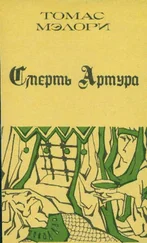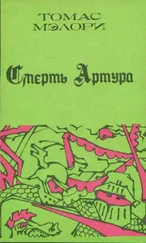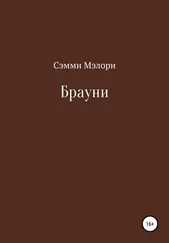Le Mort d'Arthur
Thomas Malory
THE Morte D'Arthur was finished, as the epilogue tells us, in the ninth year of Edward IV., i.e. between March 4, 1469 and the same date in 1470. It is thus, fitly enough, the last important English book written before the introduction of printing into this country, and since no manuscript of it has come down to us it is also the first English classic for our knowledge of which we are entirely dependent on a printed text. Caxton's story of how the book was brought to him and he was induced to print it may be read farther on in his own preface. From this we learn also that he was not only the printer of the book, but to some extent its editor also, dividing Malory's work into twenty–one books, splitting up the books into chapters, by no means skilfully, and supplying the "Rubrish" or chapter–headings. It may be added that Caxton's preface contains, moreover, a brief criticism which, on the points on which it touches, is still the soundest and most sympathetic that has been written.
Caxton finished his edition the last day of July 1485, some fifteen or sixteen years after Malory wrote his epilogue. It is clear that the author was then dead, or the printer would not have acted as a clumsy editor to the book, and recent discoveries (if bibliography may, for the moment, enlarge its bounds to mention such matters) have revealed with tolerable certainty when Malory died and who he was. In letters to The Athenaeum in July 1896 Mr. T. Williams pointed out that the name of a Sir Thomas Malorie occurred among those of a number of other Lancastrians excluded from a general pardon granted by Edward IV. in 1468, and that a William Mallerye was mentioned in the same year as taking part in a Lancastrian rising. In September 1897, again, in another letter to the same paper, Mr. A. T. Martin reported the finding of the will of a Thomas Malory of Papworth, a hundred partly in Cambridgeshire, partly in Hunts. This will was made on September 16, 1469, and as it was proved the 27th of the next month the testator must have been in immediate expectation of death. It contains the most careful provision for the education and starting in life of a family of three daughters and seven sons, of whom the youngest seems to have been still an infant. We cannot say with certainty that this Thomas Malory, whose last thoughts were so busy for his children, was our author, or that the Lancastrian knight discovered by Mr. Williams was identical with either or both, but such evidence as the Morte D'Arthur offers favours such a belief. There is not only the epilogue with its petition, "pray for me while I am alive that God send me good deliverance and when I am dead pray you all for my soul," but this very request is foreshadowed at the end of chap. 37 of Book ix. in the touching passage, surely inspired by personal experience, as to the sickness "that is the greatest pain a prisoner may have"; and the reflections on English fickleness in the first chapter of Book xxi., though the Wars of the Roses might have inspired them in any one, come most naturally from an author who was a Lancastrian knight.
If the Morte D'Arthur was really written in prison and by a prisoner distressed by ill–health as well as by lack of liberty, surely no task was ever better devised to while away weary hours. Leaving abundant scope for originality in selection, modification, and arrangement, as a compilation and translation it had in it that mechanical element which adds the touch of restfulness to literary work. No original, it is said, has yet been found for Book vii., and it is possible that none will ever be forthcoming for chap. 20 of Book xviii., which describes the arrival of the body of the Fair Maiden of Astolat at Arthur's court, or vii for chap. 25 of the same book, with its discourse on true love; but the great bulk of the work has been traced chapter by chapter to the "Merlin" of Robert de Borron and his successors (Bks. i.–iv.), the English metrical romance La Morte Arthur of the Thornton manuscript (Bk. v.), the French romances of Tristan (Bks. viii.–x.) and of Launcelot (Bks. vi., xi.–xix.), and lastly to the English prose Morte Arthur of Harley MS. 2252 (Bks. xviii., xx., xxi.). As to Malory's choice of his authorities critics have not failed to point out that now and again he gives a worse version where a better has come down to us, and if he had been able to order a complete set of Arthurian manuscripts from his bookseller, no doubt he would have done even better than he did! But of the skill, approaching to original genius, with which he used the books from which he worked there is little dispute.
Malory died leaving his work obviously unrevised, and in this condition it was brought to Caxton, who prepared it for the press with his usual enthusiasm in the cause of good literature, and also, it must be added, with his usual carelessness. New chapters are sometimes made to begin in the middle of a sentence, and in addition to simple misprints there are numerous passages in which it is impossible to believe that we have the text as Malory intended it to stand. After Caxton's edition Malory's manuscript must have disappeared, and subsequent editions are differentiated only by the degree of closeness with which they follow the first. Editions appeared printed by Wynkyn de Worde in 1498 and 1529, by William Copland in 1559, by Thomas East about 1585, and by Thomas Stansby in 1634, each printer apparently taking the text of his immediate predecessor and reproducing it with modifications. Stansby's edition served for reprints in 1816 and 1856 (the latter edited by Thomas Wright); but in 1817 an edition supervised by Robert Southey went back to Caxton's text, though to a copy (only two are extant, and only one perfect!) in which eleven leaves were supplied from Wynkyn de Worde's reprint. In 1868 Sir Edward Strachey produced for the present publishers a reprint of Southey's text in modern spelling, with the substitution of current words for those now obsolete, and the softening of a handful of passages likely, he thought, to prevent the book being placed in the hands of boys. In 1889 a boon was conferred on scholars by the publication of Dr. H. Oskar Sommer's page–for–page reprint of Caxton's text, with an elaborate discussion of Malory's sources. Dr. Sommer's edition was used by Sir E. Strachey to revise his Globe text, and in 1897 Mr. Israel Gollancz produced for the "Temple Classics" a very pretty edition in which Sir Edward Strachey's principles of modernisation in spelling and punctuation were adopted, but with the restoration of obsolete words and omitted phrases. As to the present edition, Sir Edward Strachey altered with so sparing a hand that on many pages differences between his version and that here printed will be looked for in vain; but the most anxious care has been taken to produce a text modernised as to its spelling, but in other respects in accurate accordance with Caxton's text, as represented by Dr Sommer's reprint. Obvious misprints have been silently corrected, but in a few cases notes show where emendations have been introduced from Wynkyn de Worde—not that Wynkyn had any more right to emend Caxton than we, but because even a printer's conjecture gains a little sanctity after four centuries. The restoration of obsolete words has necessitated a much fuller glossary, and the index of names has therefore been separated from it and enlarged. In its present form the index is the work of Mr. Henry Littlehales.
A. W. POLLARD.
Preface of William Caxton
AFTER that I had accomplished and finished divers histories, as well of contemplation as of other historial and worldly acts of great conquerors and princes, and also certain books of ensamples and doctrine, many noble and divers gentlemen of this realm of England came and demanded me many and oft times, wherefore that I have not do made and imprint the noble history of the Saint Greal, and of the most renowned Christian king, first and chief of the three best Christian, and worthy, King Arthur, which ought most to be remembered among us Englishmen to–fore all other Christian kings; for it is notoyrly known through the universal world, that there be nine worthy and the best that ever were, that is to wit, three Paynims, three Jews, and three Christian men.
Читать дальше
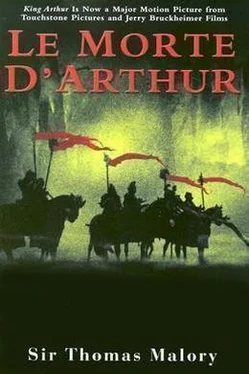
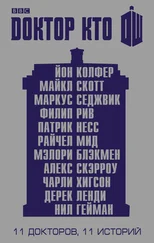



![Джош Малерман - Мэлори [litres]](/books/388628/dzhosh-malerman-melori-litres-thumb.webp)

